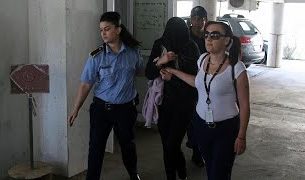We expect Christine Blasey Ford and Brett Kavanaugh’s other accusers to perfectly remember the details of what happened to them. But that’s not how memory works, and fixating on the gaps in victims’ memories makes it harder for us to take credible allegations seriously.
Subscribe to our channel! http://goo.gl/0bsAjO
In the weeks since Prof. Christine Blasey Ford accused Supreme Court nominee Brett Kavanaugh of sexually assaulting her at a high school gathering, media coverage has focused heavily on Ford’s memories. Ford admits that she can’t remember key details about the incident, including whose house it took place at and how she got home afterward.
Those gaps in her memory have led many of her critics to argue that Ford isn’t credible. Fox News in particular has seized on holes in Ford’s account to raise doubts about her allegations , even floating the theory that Ford may be confusing Kavanaugh for a doppelganger.
But forgetting non-essential details is not unusual for trauma survivors. As my colleague Brian Resnick has explained, human memory is notoriously faulty. We often forget or misremember details about our experiences, even if we initially perceived them clearly.
That’s especially true for trauma survivors — like victims of sexual assault. When humans experience intense trauma, our brains have a tendency to hyper-focus on certain pieces of information while ignoring non-essential details. A victim of sexual assault might vividly remember her attacker’s cologne but struggle to remember the layout of the room she was in or what happened in the hours after the attack. Ford, for example, claims to vividly remember the “uproarious laughter” that she heard between Kavanaugh and his friend Mark Judge while she was being assaulted.
In other words, critics who fixate on gaps in Ford’s memory are likely holding trauma survivors to a standard they won’t be able to meet.
Dr. Thema Bryant-Davis is the director of the Culture and Trauma Lab at Pepperdine University: https://gsep.pepperdine.edu/research-training/culture-and-trauma-research/
Mary P. Koss is a Regent’s Professor at the University of Arizona: https://publichealth.arizona.edu/directory/mary-koss
Read more about how rape survivors recover traumatic memories:
https://arizona.pure.elsevier.com/en/publications/traumatic-memory-characteristics-a-cross-validated-mediational-mo
On Strikethrough, Vox producer Carlos Maza explores the challenges facing the news media in the age of Trump. Follow Carlos on Facebook for more: https://www.facebook.com/CarlosMazaVox
Vox.com is a news website that helps you cut through the noise and understand what’s really driving the events in the headlines. Check out http://www.vox.com.
Watch our full video catalog: http://goo.gl/IZONyE
Follow Vox on Facebook: http://goo.gl/U2g06o
Or Twitter: http://goo.gl/XFrZ5H



